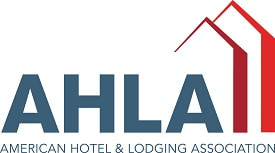Ask the Experts: Addressing Vaccine Mandates
|

Q: How do vaccine mandates affect my business and employees?
A: As the world moves into the fall, watching the continued evolution of the pandemic and vaccination status of the public at large, you may be considering management strategies that may include inquiries about vaccination status—of employees and maybe even guests. And you probably heard about the “Key to NYC” vaccine requirement to enjoy indoor dining, fitness, and entertainment.
Some Michigan establishments are requiring proof of vaccination to enter entertainment venues, restaurants, and bars. Currently, it is legal to require or encourage employees to obtain a vaccination for COVID-19, but there is still little guidance on this when it comes to valued customers and guests. Guidelines for employee-related vaccine matters will, however, help you determine whether—and how - to address this with members of the public who enter your doors.
A: As the world moves into the fall, watching the continued evolution of the pandemic and vaccination status of the public at large, you may be considering management strategies that may include inquiries about vaccination status—of employees and maybe even guests. And you probably heard about the “Key to NYC” vaccine requirement to enjoy indoor dining, fitness, and entertainment.
Some Michigan establishments are requiring proof of vaccination to enter entertainment venues, restaurants, and bars. Currently, it is legal to require or encourage employees to obtain a vaccination for COVID-19, but there is still little guidance on this when it comes to valued customers and guests. Guidelines for employee-related vaccine matters will, however, help you determine whether—and how - to address this with members of the public who enter your doors.
Vaccines and Your Business
Employers are permitted to institute mandatory COVID-19 vaccination policies for employees, incentivize vaccination, or set a permissive policy so long as the requirements of the Americans with Disabilities Act and Title VII of the Civil Rights Act of 1964 are followed. Generally, the anti-discrimination laws are only in play if employment decisions are made on the basis of protected classification such as race, sex, religion, disability, etc. Vaccination status is not one of those protected classifications. Voluntary vaccination policies certainly carry far fewer legal obligations and risks of liability, with the obvious tradeoff that it lacks a means of imposing consequences for refusal to vaccinate.
Despite commonly held misconceptions about privacy and HIPAA, you may require proof of vaccination status. Stick to asking if the employee is vaccinated and, if yes, asking for a copy of the vaccination card. Do not ask why someone is not vaccinated, unless you already implemented a mandatory policy and must evaluate next steps because the employee refuses to obtain the vaccine.
Employees whose refusal or inability to vaccinate results from a medical condition that makes vaccination unsafe or from a sincerely held religious belief enjoy some protection under the law and you should consult your employment attorney before taking further action. In both cases, a reasonable accommodation for the inability - or refusal - to vaccinate may be owed to the individual; your statutory obligation to accommodate a religious objection is less substantial than for medical inability to vaccinate. A generalized fear of vaccines or medical/scientific skepticism about vaccination are not considered protected religious beliefs. A reasonable accommodation to permit the employee to remain in the workplace may take the form of mandating mask-wearing, isolated workspace, or limited contact with others, for example.
NO SHIRT, NO SHOES, NO PROOF OF VACCINATION, NO SERVICE
While there is legislative effort to change employers’ ability to require employees to be vaccinated, there is little similar traction on that issue when it comes to hospitality guests and customers in Michigan. Because of that, we must apply general principles to guide decision-making, like the standards guiding employers. Certainly, the decision to impose a vaccine mandate for employees is difficult enough—and you have a long-term employment relationship and variety of tools at your disposal to manage the impact of your decision. You do not have the benefit of that with customers or guests who may be stopping by for the first time, or have strong convictions about vaccines, the pandemic, and your choices to manage it. The possibility of a backlash or swell of support is real.
On top of this, many state and federal statutes prohibit discrimination in places of public accommodation, which includes a restaurant or hotel. There is not yet specific protection based on COVID-19 vaccination status, but there is some concern of whether a mandatory guest vaccination policy could be a proxy for racial discrimination due to the disparate impact such a policy may have on minorities.
Employers are permitted to institute mandatory COVID-19 vaccination policies for employees, incentivize vaccination, or set a permissive policy so long as the requirements of the Americans with Disabilities Act and Title VII of the Civil Rights Act of 1964 are followed. Generally, the anti-discrimination laws are only in play if employment decisions are made on the basis of protected classification such as race, sex, religion, disability, etc. Vaccination status is not one of those protected classifications. Voluntary vaccination policies certainly carry far fewer legal obligations and risks of liability, with the obvious tradeoff that it lacks a means of imposing consequences for refusal to vaccinate.
Despite commonly held misconceptions about privacy and HIPAA, you may require proof of vaccination status. Stick to asking if the employee is vaccinated and, if yes, asking for a copy of the vaccination card. Do not ask why someone is not vaccinated, unless you already implemented a mandatory policy and must evaluate next steps because the employee refuses to obtain the vaccine.
Employees whose refusal or inability to vaccinate results from a medical condition that makes vaccination unsafe or from a sincerely held religious belief enjoy some protection under the law and you should consult your employment attorney before taking further action. In both cases, a reasonable accommodation for the inability - or refusal - to vaccinate may be owed to the individual; your statutory obligation to accommodate a religious objection is less substantial than for medical inability to vaccinate. A generalized fear of vaccines or medical/scientific skepticism about vaccination are not considered protected religious beliefs. A reasonable accommodation to permit the employee to remain in the workplace may take the form of mandating mask-wearing, isolated workspace, or limited contact with others, for example.
NO SHIRT, NO SHOES, NO PROOF OF VACCINATION, NO SERVICE
While there is legislative effort to change employers’ ability to require employees to be vaccinated, there is little similar traction on that issue when it comes to hospitality guests and customers in Michigan. Because of that, we must apply general principles to guide decision-making, like the standards guiding employers. Certainly, the decision to impose a vaccine mandate for employees is difficult enough—and you have a long-term employment relationship and variety of tools at your disposal to manage the impact of your decision. You do not have the benefit of that with customers or guests who may be stopping by for the first time, or have strong convictions about vaccines, the pandemic, and your choices to manage it. The possibility of a backlash or swell of support is real.
On top of this, many state and federal statutes prohibit discrimination in places of public accommodation, which includes a restaurant or hotel. There is not yet specific protection based on COVID-19 vaccination status, but there is some concern of whether a mandatory guest vaccination policy could be a proxy for racial discrimination due to the disparate impact such a policy may have on minorities.

What does it all mean?
You may require, urge, or take no position on employee and guest vaccination status (so far!), because vaccination status is not a protected class and claims challenging COVID-19 vaccination requirements have not been successful. While we can’t say for sure what the answers are, we can say this is a still-developing area of the law that requires careful and regular attention. So we’ll close with a reminder and some questions if you’re considering a vaccine requirement:
Whatever you decide: write the policy you’ve landed on, inform your employees about it, give them time to come into compliance, prepare and use an accommodation request form (if mandating vaccination), and, importantly, apply the policy even-handedly. In other words, be prepared:
You may require, urge, or take no position on employee and guest vaccination status (so far!), because vaccination status is not a protected class and claims challenging COVID-19 vaccination requirements have not been successful. While we can’t say for sure what the answers are, we can say this is a still-developing area of the law that requires careful and regular attention. So we’ll close with a reminder and some questions if you’re considering a vaccine requirement:
- Check on local regulation, including your health department, municipality, and county.
- The breadth of a mandate should be well defined and understood: how does it apply to guests, staff, vendors, and entertainment you invite into your establishment? How will you track and ensure enforcement, along with proper recordkeeping? How will changing weather impacting your operations and abilities to accommodate?
Whatever you decide: write the policy you’ve landed on, inform your employees about it, give them time to come into compliance, prepare and use an accommodation request form (if mandating vaccination), and, importantly, apply the policy even-handedly. In other words, be prepared:
- Establish a clear and lawful process for managing disability accommodation requests. For example, where will a disabled guest be permitted to eat or lodge? And what working arrangements for disabled employees who cannot vaccinate?
- Establish a clear and lawful process for checking proof of vaccination, such as a written policy, signage, digital announcements on your website or social media platforms.
- Train your team to consistently & lawfully enforce the policy with customer engagement strategies that include de-escalation tactics.
- Consider what to do when your business decision hits the press and social media…because it will.
MRLA Members receive 15 minutes of FREE legal consultation per month through the MRLA Legal Center!




